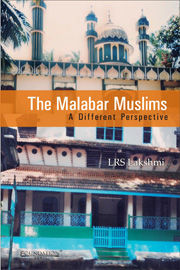Book contents
- Frontmatter
- Contents
- List of Maps
- List of Tables
- Acknowledgements
- List of Abbreviations
- Note on Transliteration
- Maps
- Introduction
- 1 The Hadhrami Roots
- 2 Family and Inheritance Laws: Continuities and Changes
- 3 Religious Spaces and Disputes
- 4 Reformist Trends
- 5 Education and Social Mobility
- 6 Mappilla Leadership and Political Mobilization
- 7 Mappillas in the Twenty-first Century: A Standing Applause
- Conclusion
- Appendix
- Glossary
- Bibliography
- Index
6 - Mappilla Leadership and Political Mobilization
Published online by Cambridge University Press: 05 June 2012
- Frontmatter
- Contents
- List of Maps
- List of Tables
- Acknowledgements
- List of Abbreviations
- Note on Transliteration
- Maps
- Introduction
- 1 The Hadhrami Roots
- 2 Family and Inheritance Laws: Continuities and Changes
- 3 Religious Spaces and Disputes
- 4 Reformist Trends
- 5 Education and Social Mobility
- 6 Mappilla Leadership and Political Mobilization
- 7 Mappillas in the Twenty-first Century: A Standing Applause
- Conclusion
- Appendix
- Glossary
- Bibliography
- Index
Summary
The Muslim political leaders had begun to exercise their influence in the matter of Mappilla girls' education by the late 1930s and early 1940s. It would be most appropriate at this juncture to show the emergence of an educated Mappilla intelligentsia which gave a cohesive political leadership to the community.
Growth of the Press in Malabar
Apart from its position as the administrative capital of the Malabar District, Kozhikode also became the centre of the print culture from the late nineteenth century. A study of the ‘Native Newspaper Reports’ reveals that a number of newspapers were published from Kozhikode. The list included the Kerala Patrika, the Kerala Sanchari, the Manorama and the Malabari, in Malayalam and they were mostly owned by the Nayars. These papers seem to have effectively voiced their opinion on British policy matters in the late nineteenth and early twentieth century. Their reports generally dealt with regional and local issues such as legislation related to marriage reform, inheritance, partition of properties, school education and other such debates. Other vernacular papers such as the Malayala Manorama and the Swadeshabhimani were published from Travancore. These papers also sometimes expressed their views on Malabar issues.
By the 1920s, the emergence of political parties in Malabar saw the birth of Malayalam political newspapers with their publishing offices in Kozhikode. For example, with the formation of the District Congress Committee at the end of the first decade of the twentieth century, a Congress daily called the Mathrubhumi was published from Kozhikode.
- Type
- Chapter
- Information
- The Malabar MuslimsA Different Perspective, pp. 132 - 155Publisher: Foundation BooksPrint publication year: 2012



